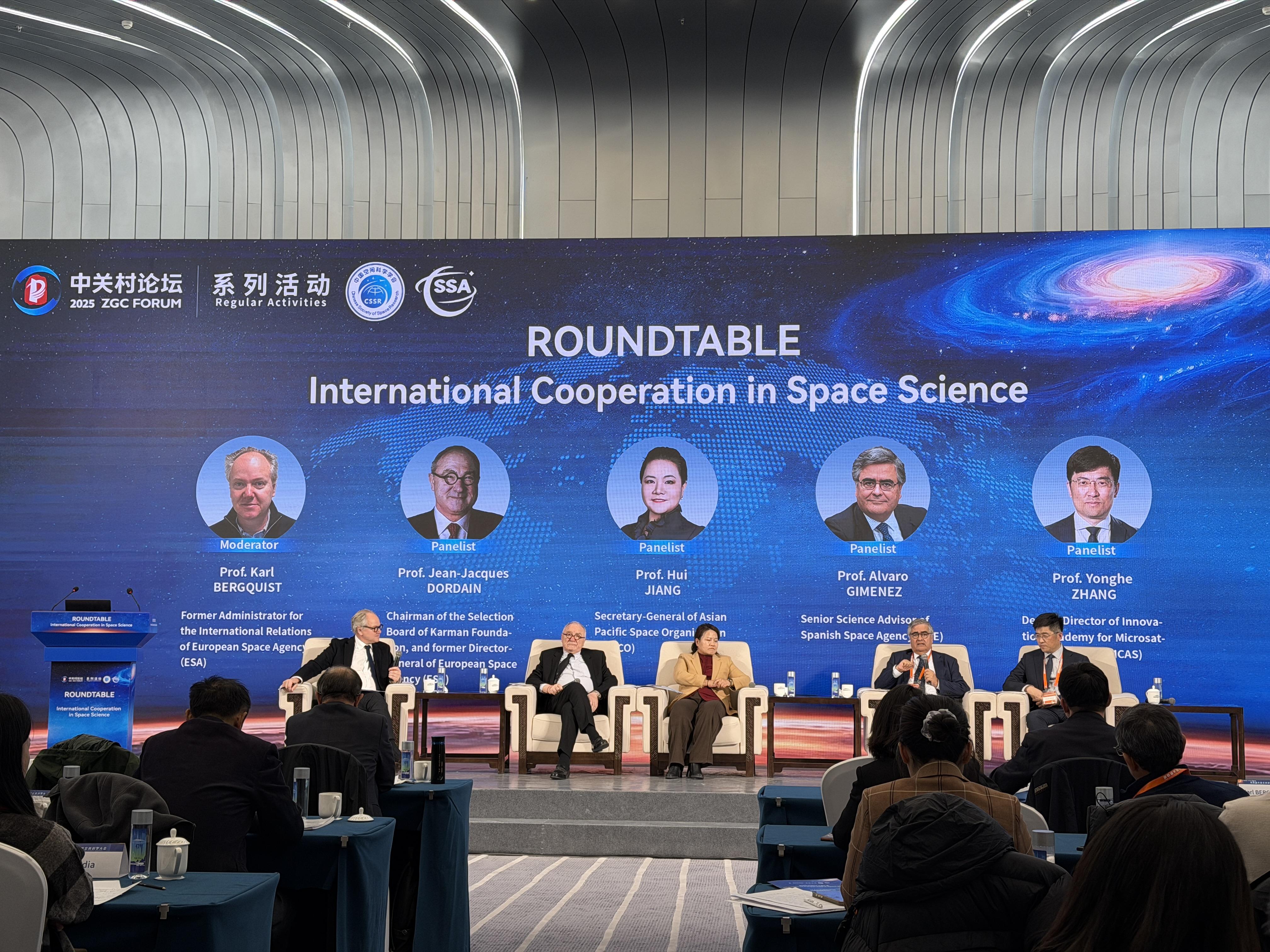Roundtable Calls for Int'l Cooperation in Space Science

"International cooperation has been very important, and will become more and more important in the future," Jean-Jacques Dordain, former director general of the European Space Agency (ESA), told Science and Technology Daily in an interview at the Roundtable for International Cooperation in Space Science in Beijing on November 21.
Organized by the Chinese Society of Space Research, the roundtable called for further global collaboration within the space science community to maximize scientific output and contribute to the advancement of knowledge.
Dordain regards the exploration of the universe and the solar system as an objective aimed at understanding the Earth and ensuring that humanity's future on the planet is as long as possible.
"It's a common objective for all humans and this is the reason we all have to contribute to that common objective," he said. "And this is the reason why international cooperation is so important."
However, global collaboration in space science is not an easy job. "You have to make sure that you understand your partner and trust your partner," Dordain said.
Alvaro Giménez, senior science advisor of the Spanish Space Agency, shared similar views. He mentioned three key elements for international cooperation, namely mutual benefits, commitment reliability, and mutual respect.
"All partners have to gain benefit from the cooperation...people have to respect the contribution of each partner," he said.
China has been cooperating with many countries and regions in space science.
Dordain said China has done a lot in international cooperation and gave the example of the Beijing-headquartered Asia-Pacific Space Cooperation Organization (APSCO), via which China offers other countries access to space data.
APSCO Secretary-General Jiang Hui elaborated on this, saying the organization emphasizes resource sharing among member states to advance fundamental scientific knowledge while delivering tangible social economic benefits, particularly for developing countries in the Asia-Pacific region.
The cooperation between China and Europe has been consistent. "Twenty years ago, I was here in Beijing to sign a cooperation agreement between ESA and China National Space Administration, so I am a strong believer in the cooperation with China," Dordain said.
In 2015, SMILE, the Solar Wind Magnetosphere Ionosphere Link Explorer mission, was selected from a pool of 13 potential missions proposed to the Chinese Academy of Sciences and ESA. The mission aims to build a more complete understanding of the Sun-Earth connection by measuring solar wind and its dynamic interaction with the magnetosphere. According to ESA, SMILE is due to launch on a European Vega-C rocket in spring 2026.
For further cooperation, Dordain said China and Europe can combine their best assets. China has a relatively large volume of activities and space technologies, and Europe has, what he called "the best understanding of what means cooperation."







